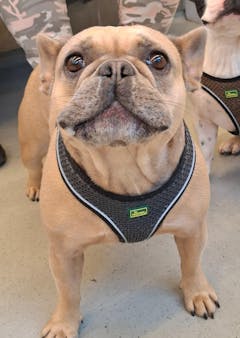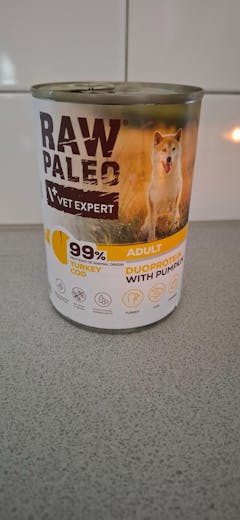Spannmålsfritt Hundfoder: En Hälsosam Valmöjlighet för Din Bästa Vän
I takt med att medvetenheten om hundars hälsa ökar, söker allt fler hundägare efter spannmålsfritt hundfoder som ett alternativ till traditionella dieter. Ett spannmålsfritt foder är utformat utan ingredienser som vete, majs, ris, korn eller havre, och ersätter dem istället med alternativa kolhydratkällor som potatis, sötpotatis, ärtor eller linser. Detta val är särskilt populärt för hundar med känslig mage, foderallergier eller för ägare som önskar en diet som närmare efterliknar hundens naturliga kost. På Zoostar.se hittar du ett brett och noga utvalt sortiment av spannmålsfritt hundfoder, både som torrfoder och våtfoder, från ledande tillverkare som prioriterar din hunds välbefinnande.
Varför Välja Spannmålsfritt Hundfoder?
Valet av spannmålsfritt hundfoder grundar sig ofta på flera viktiga faktorer:
1. Foderallergier och Intoleranser:
Detta är den vanligaste anledningen till att hundägare väljer spannmålsfritt. Vissa hundar utvecklar allergier eller intoleranser mot specifika spannmålsproteiner. Symtom kan inkludera:
- **Hudproblem:** Klåda, rodnad, håravfall, återkommande hudinfektioner, kroniska öroninflammationer.
- **Mag-tarmproblem:** Diarré, kräkningar, gaser, uppblåsthet, buksmärtor eller oregelbunden avföring.
- **Övriga Symtom:** Till exempel dålig andedräkt eller brist på energi.
Genom att eliminera spannmål kan dessa symtom ofta minskas eller helt försvinna, vilket förbättrar hundens livskvalitet avsevärt. För hundar med bekräftade allergier kan veterinärfoder vara ett alternativ.
2. Känslig Mage:
Även om hunden inte har en fullskalig allergi, kan vissa spannmål vara svårsmälta för känsliga hundar. Ett spannmålsfritt foder, ofta med lättsmälta kolhydratkällor som potatis eller sötpotatis, kan bidra till en lugnare matsmältning och minska problem som gaser eller lös avföring.
3. Högre Kvalitet på Ingredienserna:
Många tillverkare av spannmålsfria foder tenderar att prioritera högkvalitativa proteinkällor som kött eller fisk som de primära ingredienserna. Detta kan tilltala ägare som söker ett foder med en högre andel animaliskt protein och en mer naturlig sammansättning.
4. Förbättrad Hud och Päls:
När hundens kropp hanterar sin kost bättre och näringsupptaget optimeras, kan det ofta resultera i en friskare hud och en glansigare päls. Många spannmålsfria foder är också berikade med omega-3 och omega-6 fettsyror som är kända för sina positiva effekter på hud- och pälshälsa.
5. En Mer Naturlig Diet:
Vissa hundägare väljer spannmålsfritt utifrån tron att det bättre efterliknar hundens evolutionära kost som rovdjur, där spannmål inte skulle ha varit en dominerande del.
Viktiga Aspekter att Tänka på vid Val av Spannmålsfritt Foder
Även om spannmålsfritt hundfoder erbjuder många fördelar, är det viktigt att vara medveten om några punkter:
- **Inte En Universallösning:** Spannmålsfritt är inte automatiskt bättre för alla hundar. En frisk hund utan känsligheter mår utmärkt på ett högkvalitativt foder som innehåller spannmål.
- **Alternativa Kolhydratkällor:** Se till att de alternativa kolhydratkällorna (som potatis, sötpotatis, ärtor) är av god kvalitet och bidrar med nödvändiga näringsämnen. Balansen mellan protein, fett och kolhydrater är avgörande.
- **Forskning och Kvalitet:** Välj alltid foder från välrenommerade tillverkare som investerar i forskning och har god kvalitetskontroll. Det har förekommit diskussioner om ett eventuellt samband mellan vissa spannmålsfria dieter (särskilt de med höga nivåer av baljväxter) och hjärtproblem hos vissa raser, men forskningen kring detta pågår fortfarande. Diskutera med din veterinär om du är osäker.
- **Kaloriinnehåll:** Kontrollera kaloriinnehållet. Vissa spannmålsfria foder kan vara mer energitäta än traditionella, vilket kan vara viktigt att tänka på för att undvika övervikt.
Vårt Sortiment av Spannmålsfritt Hundfoder på Zoostar.se
På Zoostar.se erbjuder vi ett brett urval av spannmålsfritt hundfoder från de mest pålitliga varumärkena på marknaden. Vi har alternativ för:
- **Alla Livsstadier:** Från valpfoder för den växande valpen till foder för äldre hundar.
- **Olika Proteinkällor:** Foder baserade på allt från kyckling och lax till lamm, vilt och anka, för att tillgodose olika smaker och undvika specifika proteinallergier.
- **Torrfoder och Våtfoder:** Du hittar både spannmålsfritt torrfoder och spannmålsfritt våtfoder, så att du kan välja den konsistens som din hund föredrar eller för att variera dieten.
- **Känsliga Behov:** Speciellt formulerade foder för hundar med känslig hud eller mage.
Utöver spannmålsfritt hundfoder, hittar du även ett brett utbud av andra kvalitetsprodukter för din hunds kostbehov på Zoostar.se, inklusive vårt fullständiga sortiment av hundmat och foder, veterinärfoder, hundgodis och tuggbitar, samt mjölkersättning och valpvälling.
Vi på Zoostar.se är övertygade om att en välbalanserad kost är grunden för ett långt och friskt hundliv. Vårt mål är att göra det enkelt för dig att hitta det spannmålsfria hundfodret som passar just din hund bäst. Om du har frågor eller funderingar, tveka inte att kontakta oss!
Vanliga frågor om Spannmålsfritt Hundfoder
Här besvarar vi några av de mest frekventa frågorna vi får angående spannmålsfritt hundfoder.
Vad är spannmålsfritt hundfoder och varför väljer man det?
Spannmålsfritt hundfoder är, som namnet antyder, foder som inte innehåller några spannmål som vete, majs, ris, korn eller havre. Istället används alternativa kolhydratkällor som potatis, sötpotatis, ärtor, linser eller tapioka. Bakgrunden till varför spannmålsfritt foder har blivit så populärt är dels en trend mot att efterlikna hundens ursprungliga kost som varg, dels att möta behoven hos hundar med känsligheter eller allergier. Varför väljer man spannmålsfritt hundfoder? Det finns flera anledningar till att hundägare väljer att byta till spannmålsfritt foder för sina hundar:
- Foderallergier och Intoleranser: Detta är den vanligaste anledningen. Vissa hundar kan vara allergiska eller intoleranta mot specifika spannmålsproteiner. Symtom kan inkludera hudproblem (klåda, rodnad, håravfall, kroniska öroninflammationer), mag-tarmproblem (diarré, kräkningar, uppblåsthet, gaser) eller återkommande infektioner. Genom att eliminera spannmål kan man minska eller helt ta bort dessa reaktioner. Det är dock viktigt att notera att en hund kan vara allergisk mot andra ingredienser också, som kyckling eller nötkött, och inte bara spannmål.
- Känslig Mage: Även om hunden inte har en fullskalig allergi, kan spannmål vara svårsmält för vissa individer och leda till orolig mage, gaser eller lös avföring. Spannmålsfria alternativ, ofta med lättsmälta kolhydratkällor och ett högre fiberinnehåll från grönsaker, kan bidra till en lugnare matsmältning.
- Högre Kvalitet på Ingredienserna: Många spannmålsfria foder tenderar att lägga större vikt vid högkvalitativa proteinkällor (kött, fisk) som huvudkomponent. Detta kan vara attraktivt för ägare som söker ett foder med högre andel animaliskt protein.
- Ökad Energi och Utfodringseffektivitet: Hundar är köttätare till sin natur, och deras matsmältningssystem är väl anpassat för att bearbeta animaliska proteiner och fetter. Ett foder med högkvalitativa proteiner och fetter som huvudsakliga energikällor kan leda till effektivare energiutnyttjande och bättre mättnad.
- Blankare Päls och Friskare Hud: Förbättrad näringsupptagning från ett foder som hundens kropp hanterar bättre, kombinerat med ingredienser som omega-3 och omega-6 fettsyror från till exempel laxolja, kan bidra till en blankare päls och friskare hud.
- Viktkontroll: Vissa spannmålsfria foder kan hjälpa till med viktkontroll genom att fokusera på proteiner och fibrer snarare än lättillgängliga kolhydrater, vilket kan leda till bättre mättnad och en jämnare energinivå. Viktigt att tänka på: Trots fördelarna är spannmålsfritt inte synonymt med "bättre" för alla hundar. En hund utan känslighet mot spannmål kan må utmärkt på ett högkvalitativt foder som innehåller spannmål. Det har också funnits diskussioner om ett möjligt samband mellan vissa spannmålsfria dieter (särskilt de med höga nivåer av baljväxter som ärtor och linser) och en sällsynt hjärtsjukdom kallad Dilaterad Kardiomyopati (DCM) hos vissa raser. Forskningen kring detta pågår, och det är viktigt att välja ett foder från en välrenommerad tillverkare som utför forskning och kvalitetskontroller, samt att rådfråga din veterinär om du är osäker.
Vilka är fördelarna med spannmålsfritt foder för hundar med känslig mage eller allergier?
Spannmålsfritt hundfoder har blivit ett populärt val, särskilt för hundar med känslig mage eller konstaterade allergier. De potentiella fördelarna för dessa hundar är betydande och kan avsevärt förbättra deras livskvalitet. Här är de främsta fördelarna: För hundar med foderallergier eller intoleranser:
- Eliminering av vanliga allergener: Vete, majs, ris och soja är några av de vanligaste ingredienserna som kan utlösa allergiska reaktioner hos hundar. Genom att ta bort dessa spannmål från kosten eliminerar man en stor grupp potentiella allergener. Detta gör det lättare att identifiera och hantera en foderallergi.
- Reducerade allergisymptom: Om spannmål är orsaken till hundens allergi, kommer en spannmålsfri diet ofta att leda till en märkbar förbättring av symptomen. Vanliga symptom som kan minska eller försvinna inkluderar: - Hudproblem: Klåda, torr hud, rodnad, utslag, håravfall, kroniska hudinfektioner, återkommande öroninflammationer. - Mag-tarmproblem: Kronisk diarré, kräkningar, gaser, uppblåsthet, buksmärtor, nedsatt aptit. - Andra symptom: Dålig andedräkt (ibland kopplat till matsmältningsproblem), brist på energi, eller allmänt nedsatt välbefinnande.
- Förenklad eliminationsdiet: När en veterinär misstänker foderallergi, är en eliminationsdiet det vanligaste diagnostiska verktyget. Ett spannmålsfritt foder med en ny eller hydrolyserad proteinkälla är ofta grunden för en sådan diet, då det minimerar antalet potentiella allergener. För hundar med känslig mage (utan konstaterad allergi):
- Lättare smältbarhet: Vissa spannmål kan vara svårsmälta för hundar, vilket kan leda till magbesvär som gaser, lös avföring eller oregelbundna tarmrörelser. Spannmålsfria foder använder ofta alternativa kolhydratkällor som potatis eller sötpotatis som kan vara lättare för hundar att smälta.
- Minskad inflammation i tarmen: För vissa hundar kan spannmål bidra till mild inflammation i tarmen, även utan en fullskalig allergi. Ett spannmålsfritt foder kan då bidra till en lugnare och friskare tarmmiljö.
- Förbättrad näringsupptagning: Om hundens matsmältningssystem arbetar mer effektivt med ett spannmålsfritt foder, kan det leda till bättre upptag av näringsämnen, vilket i sin tur kan reflekteras i en friskare hud, blankare päls och mer energi.
- Förbättrad avföringskvalitet: Många ägare rapporterar att deras hundar får fastare och mer regelbunden avföring efter att ha bytt till spannmålsfritt foder, vilket tyder på bättre matsmältning.
Är spannmålsfritt foder lämpligt för alla hundar?
Nej, spannmålsfritt hundfoder är inte nödvändigtvis lämpligt eller optimalt för alla hundar, även om det har blivit ett mycket populärt val. Valet av foder bör alltid baseras på den individuella hundens behov, hälsa, ålder och eventuella känsligheter. Här är en närmare titt på när spannmålsfritt foder är lämpligt och när det kanske inte är det: När spannmålsfritt foder ÄR lämpligt:
- Foderallergier och intoleranser: Detta är den främsta anledningen. Om en hund har diagnostiserats med en allergi eller intolerans mot specifika spannmål (som vete, majs, ris, korn eller havre), är ett spannmålsfritt foder ett utmärkt val för att eliminera allergenerna och lindra symptom som hudproblem, klåda eller mag-tarmbesvär.
- Känslig mage: För hundar som uppvisar milda mag-tarmproblem som gaser, uppblåsthet eller lös avföring utan en fullskalig allergi, kan spannmålsfritt foder med lättsmälta kolhydratkällor (som potatis, sötpotatis, ärtor) bidra till en lugnare matsmältning.
- Önskan om ett "mer naturligt" foder: Vissa ägare föredrar spannmålsfritt foder baserat på en filosofi att det bättre efterliknar hundens ursprungliga diet som rovdjur. När spannmålsfritt foder KANSKE INTE ÄR det bästa valet:
- Friska hundar utan känsligheter: För en frisk hund utan några tecken på spannmålsintolerans eller allergi, finns det inget vetenskapligt bevis för att spannmålsfritt foder är "bättre" än ett högkvalitativt foder som innehåller spannmål. Spannmål kan vara en utmärkt källa till energi, fibrer, vitaminer och mineraler.
- Potentiella näringsobalanser: I vissa sällsynta fall kan spannmålsfria dieter med höga nivåer av baljväxter (som ärtor, linser, kikärtor) som huvudsaklig kolhydratkälla ha kopplats till en sällsynt form av hjärtsjukdom kallad Dilaterad Kardiomyopati (DCM) hos vissa raser. Forskningen kring detta pågår fortfarande, och det är inte helt klarlagt varför detta samband kan finnas. Om du är orolig, välj ett foder från en tillverkare som bedriver egen forskning och kvalitetssäkring, och diskutera med din veterinär.
- Kostnad: Spannmålsfritt foder kan ibland vara dyrare än foder som innehåller spannmål, vilket kan vara en faktor för vissa hundägare.
- Specifika medicinska tillstånd: För hundar med vissa medicinska tillstånd kan ett spannmålsfritt foder vara kontraindicerat eller mindre optimalt. Till exempel kan vissa veterinärfoder innehålla specifika spannmål just för att uppnå en viss näringsprofil (t.ex. för njur- eller leverproblem).
Spannmålsfritt Hundfoder – Näring, Allergihantering & Optimal Matsmältning för Hundar
Varför väljer många hundägare spannmålsfritt foder och vilka hundar behöver det?
Spannmålsfritt hundfoder används främst för att göra kosten mer digestiv, proteinrik och låg i potentiella allergener. Hundar är fysiologiskt anpassade för att bryta ned animaliskt protein och fett effektivt, medan stora mängder spannmål kan ge magbesvär, hudproblem eller förändrad avföringskvalitet hos känsliga individer.
Hundar som ofta får nytta av spannmålsfritt är de med:
✔ återkommande diarré, gaser eller lös avföring
✔ klåda, hudirritation eller öronproblem
✔ låg aptit eller dålig viktuppgång
✔ hög aktivitetsnivå (behov av protein/energi)
Men spannmålsfritt är inte automatiskt bättre för alla hundar. Det är ett bra alternativ när hundens symptom, metabolism eller aktivitetsnivå motiverar det – inte som marknadsföringstrend.
Är spannmålsfritt hundfoder mer näringsrikt än foder med spannmål?
Det kan vara det – men inte alltid.
Spannmålsfria recept bygger ofta på kött, fisk eller ägg som primära ingredienser och ger:
✔ högre råproteinhalt
✔ bättre aminosyrabalans
✔ mindre fyllnadsprodukter
✔ högre biologiskt värde
Men ett vanligt problem är att vissa tillverkare ersätter spannmål med billig potatisstärkelse, ärtprotein eller tapioka, vilket gör fodret spannmålsfritt – men inte näringsrikt.
Kvalitet bedöms inte av etiketten, utan av:
huvudingrediens: kött/fisk
råproteinhalt
fettsyrabalans (omega-3/6)
fiberprofil
Ett bra spannmålsfritt foder är animalie-baserat, inte stärkelse-baserat.
Är spannmålsfritt hundfoder bra för allergihundar?
Ja, ofta – men bara om allergin är kopplad till spannmål.
Många hundar reagerar på:
• vete
• majs
• gluten
• soja
Foder kan då ge tydlig förbättring av:
✔ avföring
✔ hud och päls
✔ öronhälsa
✔ energinivå
Men lika många hundar är allergiska mot kyckling och nötkött, vilket kan ge sämre resultat om man byter till ”spannmålsfritt kycklingbaserat”.
Vid misstänkt allergi är ofta bäst att välja:
✔ monoprotein, spannmålsfritt
✔ hydrolyserat protein vid svårare allergi
Diagnos bör ske med eliminationskost, gärna med veterinärstöd.
Passar spannmålsfritt hundfoder valpar, vuxna och seniorer?
Ja – om näringsprofilen är balanserad.
Valpar:
→ behöver protein/energi för utveckling
→ spannmålsfritt kan fungera utmärkt, särskilt vid känslig mage
Vuxna:
→ proteinrikt foder passar aktiva hundar
Seniorer:
→ spannmålsfritt kan minska inflammation
→ men överdrivet fettinnehåll kan vara problem
För äldre hundar är omega-3, låg fosfor och kontrollerad energi viktigare än etiketten ”spannmålsfritt”.
Vilka är de vanligaste misstagen med spannmålsfritt hundfoder?
Tre stora misstag:
Tro att allt spannmålsfritt är premium
– många är potatisbaserade och näringsfattiga
Byta snabbt utan introduktion
– ger diarré och gaser, inte för att fodret är dåligt utan pga omställning
Överutfodra aktiva foder till stillsamma hundar
– leder till viktuppgång och inflammation
Spannmålsfritt kräver samma disciplin som allt annat foder:
→ analys, portionering, gradvis introduktion.
Husdjursprodukter Online
Utforska fler populära hundkategorier
Här hittar du många av våra mest efterfrågade kategorier – från hundfoder och godis till tillbehör, vård och aktivering.
Ledande Fodertillverkare
Populära hundfodermärken
Här hittar du våra mest populära hundfoder – från spannmålsfritt till veterinärfoder. Klicka på ett varumärke för att se hela sortimentet.






